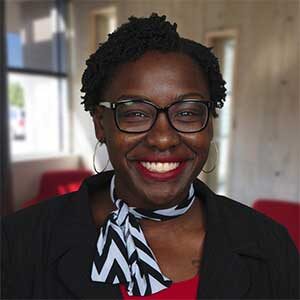Diversity, equity, inclusion, and belonging (DEIB) are words that we are hearing a lot in the architecture, engineering, and construction industry, and aviation is no exception. Within aviation, we have seen proposed solutions to systemic and systematic issues that have led to marginalization and barriers for underrepresented groups.
Mead & Hunt has been involved in the aviation industry since the 1940s. Throughout this long history, we have worked with diverse airports across the nation, from rural general aviation airports to large hubs. This experience has taught us that each airport and community is unique, and there is no one-size-fits-all approach if you want to build inclusive, adept teams, enhance accountability for our policies and work products, and provide equitable access to opportunities.
How we’re enhancing DEIB principles in our firm, industry, & communities:
We internalize and formalize DEIB.
Our DEIB program was officially started in 2018 when our Employee Resource Group (ERG) was formed to help shape and execute DEIB initiatives within the company. Over time, the efforts of our ERG have expanded to include our communities and our clients. We now have two full-time positions dedicated to DEIB – one focused on leading the ERG and our workforce DEIB initiatives, and a Transportation Equity Strategist that optimizes equitable outcomes for our projects, partnerships, communities, and clients.
We work to educate ourselves and others.
Last year, Mead & Hunt partnered with professors and academics from a few universities, including Arizona State and Carnegie-Mellon, to develop a pilot program for an eight-week professional development course to help engineers, planners, and architects incorporate environmental justice into their project planning and design.
This approach not only produces better and more inclusive outcomes for our clients and communities, but we also believe that underrepresented groups in the AEC industry will be more passionate and fulfilled if they are working on projects that do not place or perpetuate unfair burdens on communities they associate with. This approach will also have a positive impact on our field’s ability to recruit and retain professionals from minority backgrounds by facilitating more personal connections to the work and creating pathways for folks to address historic harms through their work.
We work to change our industries.
We encourage employees to present at national conferences, including AMAC, National Organization of Minority Architects (NOMA), or the Society of American Military Engineers (SAME), to share our best practices in equity and environmental justice and to grow those discussions within the industry.
We focus on DEIB in our projects.
To work toward producing equitable and inclusive outcomes for all the communities we serve, we have developed a project review process that allows us to measure our impact on communities that have historically been marginalized or forced to carry a disproportionate burden of project impacts. This process includes a preliminary review of client and community concerns, interviews with stakeholders, and reaching back after projects to be accountable to our work.
We help others reach their goals.
We support over 60 airport clients in setting goals, documenting, and performing work on their Disadvantaged Business Enterprise/Airport Concessions Disadvantaged Business Enterprise (DBE/ACDBE) Programs and have several staff that are trained DBE liaison officers. We have an entire department and a cross-disciplinary sustainability and resilience team dedicated to environmental justice. We have individuals who are certified in areas including LEED and Envision, two certification programs that help us start with an equity framework. We guide airports through regulation updates, community outreach techniques, and emerging technologies that will encourage a thriving and diverse aviation workforce.
Why does DEIB in aviation matter?
It is imperative for airports to create the funds, time, and space to address equity and environmental justice. Airports are responsible for their individual contributions to systematic issues and for helping the entire system acknowledge and adopt standards for equitable outcomes. Through modifying how we engage, plan, engineer, and design airport projects, we can start to build a sustainable, resilient system with a foundation that will prevent marginalization and discrimination.



